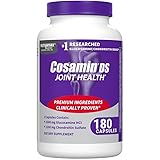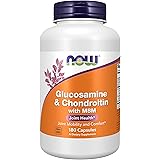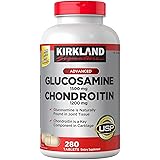Joint Support for Weightlifting
Table of Contents
- Importance of Joint Health for Lifters
- Best Supplements for Joint Support
- Exercises to Strengthen Joints
- Nutrition Tips for Joint Health
Importance of Joint Health for Lifters
Understanding Joint Function
Let’s kick things off by acknowledging just how vital our joints are when we’re lifting weights. Each time I step into the gym, I think about how all those joints — from my shoulders to my knees — need to work like a well-oiled machine. Without healthy joints, no matter how much I bench or squat, my performance can take a hit.
Our joints are like the hinges of a door, allowing movement and flexibility. They’re held together by ligaments and cushioned by cartilage, which can wear down over time, especially under the repeated stress of lifting. This is why joint health is something I can’t ignore if I want to keep progressing in my weightlifting journey.
I’ve had days when my knees felt like they were complaining after a heavy leg day. Trust me, ignoring these signals is a recipe for disaster. Making joint health a priority keeps me lifting and ensures I don’t face unnecessary setbacks.
Signs of Joint Stress
As I’ve dived deeper into this journey, I’ve learned to listen to my body. Pain, swelling, and stiffness are all signs that my joints might be struggling. Sometimes, the tightness can just be soreness post-workout, but other times, it might signal that I’m overdoing it.
I remember this one time, after an intense pulling session, my elbows let me know they weren’t happy. So, instead of pushing through the pain, I took a step back and adjusted my routine. It’s all about being mindful and knowing when to give those joints a breather.
Recognizing these signs early on means I can make adjustments to my practice to prevent long-term damage. Emphasizing joint health is about tuning in and being proactive, not reactive.
The Best Joint Support (Naturally) Starts with Organic Nutritional Support!
Get 40% Off Here ...
Long-Term Benefits of Joint Care
If there’s one thing I wish I could tell my younger self, it’s to prioritize joint care. Looking after my joints now not only enhances my performance but also sets me up for success down the line. I mean, who wants to be sidelined with injuries when there’s a weightlifting PR to crush?
Over the years, I’ve experienced firsthand how maintaining strong joints extends my lifting career. And honestly, it’s empowering to lift heavier while feeling safe. It’s like having a secret weapon in your fitness toolkit.
By paying attention to joint health, I can enjoy the workouts I love, maintain my mobility, and keep pushing my limits. In the long run, taking care of my joints has been one of the best investments I’ve made in my fitness journey.
Best Supplements for Joint Support
Common Joint Supplements
When it comes to joint support, I’ve tried a handful of supplements over the years. Two of the key players I always keep on hand are glucosamine and chondroitin. They’re known for helping repair cartilage and improve joint function, and I’ve felt a difference after adding them to my routine.
Another favorite of mine is omega-3 fatty acids. Fish oil has done wonders for reducing inflammation, which can be particularly helpful during those tough lifting sessions. I remember the first time I started taking it; I saw my recovery time improve significantly.
Let’s not forget turmeric! This golden spice packs a punch as a natural anti-inflammatory. I often toss it into my smoothies or meals to keep my joints feeling great — it’s a win-win!
Timing and Dosage
Now, I’ve learned over time that timing and dosage matter just as much as the supplements themselves. Taking glucosamine and chondroitin consistently is key. After experimenting a bit, I found that taking them with meals helps me maximize their benefits, and I aim for a standard dose that works for me based on recommendations.
As for omega-3s, I try to incorporate them into my diet daily. If I miss my fish meals, I make sure to pop a fish oil capsule. Consistency is king here; it’s all about building those joint reserves.
And with turmeric, I find that spreading it out over my meals keeps me feeling good. Every little bit helps, right? It’s about making these supplements a regular part of my lifestyle.
Choosing the Right Products
When selecting supplements, I’ve learned that not all products are created equal. I always check for third-party testing and read reviews to ensure I’m buying high-quality stuff. After all, my joints are worth it!
I recommend starting with reputable brands that have a track record for quality. If a product has a seal from a dietary supplement verification program, I take that as a good sign. It gives me peace of mind knowing I’m not getting any funky ingredients.
Lastly, before you dive into any new supplement regimen, always consult with a healthcare professional. As much as I ‘ve experienced the benefits, getting tailored advice ensures I’m making the right choices for my body.
Exercises to Strengthen Joints
Low-Impact Movements
Some days, my routine includes low-impact exercises that keep my joints happy without heavy stress. Think of activities like swimming or cycling. They provide a great workout while being easy on the joints, making them a staple in my arsenal.
I often include bodyweight exercises like wall sits and modified push-ups. These get my muscles firing while protecting my joints from excessive strain. It’s a fantastic way to build strength without the pressure of heavy lifting.
Yoga has also been a game-changer for me. The flexibility and strength-building aspects have worked wonders in keeping my joints limber and mobile. It’s one of those low-key high-impact tweaks I recommend to anyone serious about joint health.
Joint-Specific Workouts
When I’m focusing on joint-specific workouts, I’ll often target those areas that need the most love. Simple exercises like leg lifts for my hip joints or wrist curls for my wrists help build muscle support around vulnerable areas.
I love incorporating resistance bands into my routine. They’re brilliant for controlled movements that strengthen muscles without putting tons of pressure on my joints. I frequently do band pull-aparts or monster walks — they feel great and work wonders!
Also, don’t underestimate the power of mobility drills. They’re fantastic for prepping my joints for a heavy lift day. I make it a point to include dynamic stretches and movements before I hit the weights to ensure everything is primed and ready to go.
Recovery and Stretching Routines
Recovery is often where I see the most significant gains in joint health. I wouldn’t skip stretching after my workouts, as helping maintain flexibility and range of motion is crucial. I usually dedicate some time post-session to really focus on stretches that target my major joint areas.
Foam rolling is also my secret weapon. Spending a few minutes rolling out sore muscles helps mitigate joint pain and stiffness. It’s surprising how much better I feel with just a little self-care.
Rest days are each as essential as workout days! Giving my joints time to recover allows them to repair and strengthen. Balancing intense workouts with thoughtful rest is the hallmark of joint care.
Nutrition Tips for Joint Health
Anti-Inflammatory Foods
As I’ve explored nutrition more seriously, I’ve realized that some foods are remarkable for keeping inflammation at bay. Think of staples like leafy greens, berries, and nuts. They pack antioxidants and omega-3s, which do wonders in tending to those achy joints.
I also make sure to incorporate colorful veggies into my meals. The more colors on my plate, the more nutrients I seem to consume, and having that variety keeps me motivated to eat well. Plus, who doesn’t love a fresh salad or a roasted rainbow of veggies?
And let’s not forget the hydration game! Drinking plenty of water keeps my joints lubricated, which is crucial when I push my limits in the gym. Staying hydrated helps maintain that fluid around my joints, keeping everything smooth and functional.
Avoiding Foods That Wreak Havoc
Sometimes, it’s just as critical to know what to avoid. I’ve learned that processed foods, fried items, or excessive sugar tend to trigger inflammation. Since I’m all about feeling great, I do my best to minimize these in my diet.
Instead, I fill my meals with whole foods that benefit both my joints and overall health! It’s all about being conscious of what I’m putting in my body and its long-term effects.
Alcohol is another area I tread lightly. While enjoying a social drink is okay now and then, I noticed that too much of it can lead to stiffness in my joints. It’s all about balance, right?
Meal Plans for Joint Health
To keep me on track, I’ve started crafting meal plans focused on joint health. By batching meals during the week, I ensure that I’m eating well without the stress of daily meal preparation. I often stock my fridge with grilled chicken, quinoa, and roasted veggies for quick, nutrient-dense eats.
Snacks play a big role too! I love keeping easy snacks around like almonds or Greek yogurt, which not only satisfy my hunger but also provide that joint-supporting goodness I crave.
Planning everything out definitely helps me stay disciplined, and I can notice the positive impact it has on my workouts — my joints feel more stable and less strained. It’s how I fuel my gains while keeping my joints in check!
FAQ
What are the most effective supplements for joint support?
The most common effective supplements I’ve used are glucosamine, chondroitin, omega-3 fatty acids, and turmeric. Each plays a unique role in supporting joint health, reducing inflammation, and improving mobility.
How can I tell if my joints need more support?
Pay attention to your body! Signs like persistent pain, swelling, or stiffness, particularly after workouts, are all indicators that your joints might need some extra care and support.
Are there specific exercises that help strengthen joints?
Absolutely! Low-impact exercises like swimming, resistance band workouts, and joint-specific movements like leg lifts can help build strength around vulnerable areas while keeping stress off the joints.
Is nutrition really important for joint health?
Yes, definitely! A diet rich in anti-inflammatory foods, hydration, and avoiding processed items plays a crucial role in maintaining healthy joints. What I eat directly impacts my performance and recovery.













